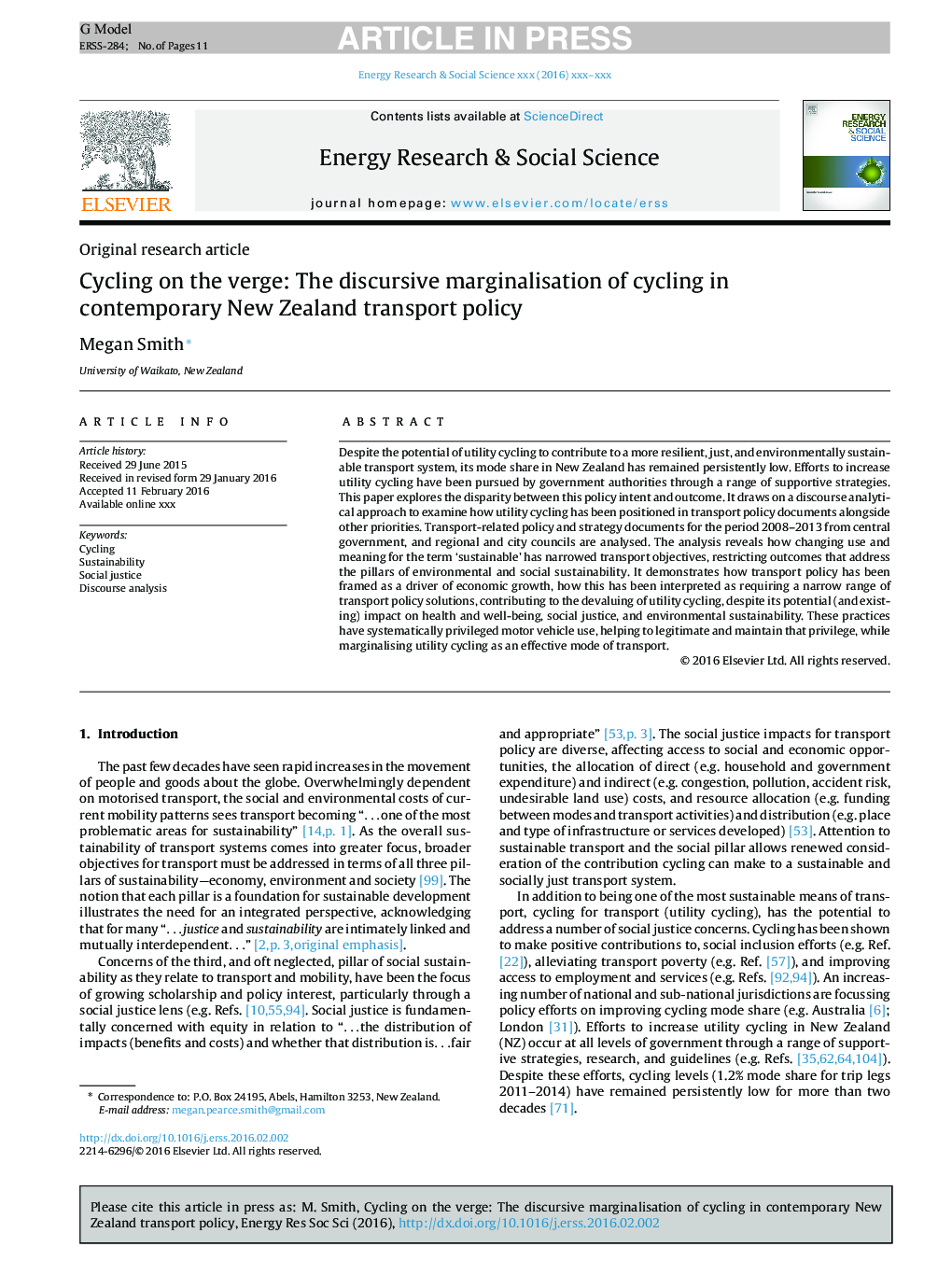| Article ID | Journal | Published Year | Pages | File Type |
|---|---|---|---|---|
| 6558010 | Energy Research & Social Science | 2016 | 11 Pages |
Abstract
Despite the potential of utility cycling to contribute to a more resilient, just, and environmentally sustainable transport system, its mode share in New Zealand has remained persistently low. Efforts to increase utility cycling have been pursued by government authorities through a range of supportive strategies. This paper explores the disparity between this policy intent and outcome. It draws on a discourse analytical approach to examine how utility cycling has been positioned in transport policy documents alongside other priorities. Transport-related policy and strategy documents for the period 2008-2013 from central government, and regional and city councils are analysed. The analysis reveals how changing use and meaning for the term 'sustainable' has narrowed transport objectives, restricting outcomes that address the pillars of environmental and social sustainability. It demonstrates how transport policy has been framed as a driver of economic growth, how this has been interpreted as requiring a narrow range of transport policy solutions, contributing to the devaluing of utility cycling, despite its potential (and existing) impact on health and well-being, social justice, and environmental sustainability. These practices have systematically privileged motor vehicle use, helping to legitimate and maintain that privilege, while marginalising utility cycling as an effective mode of transport.
Related Topics
Physical Sciences and Engineering
Energy
Energy (General)
Authors
Megan Smith,
